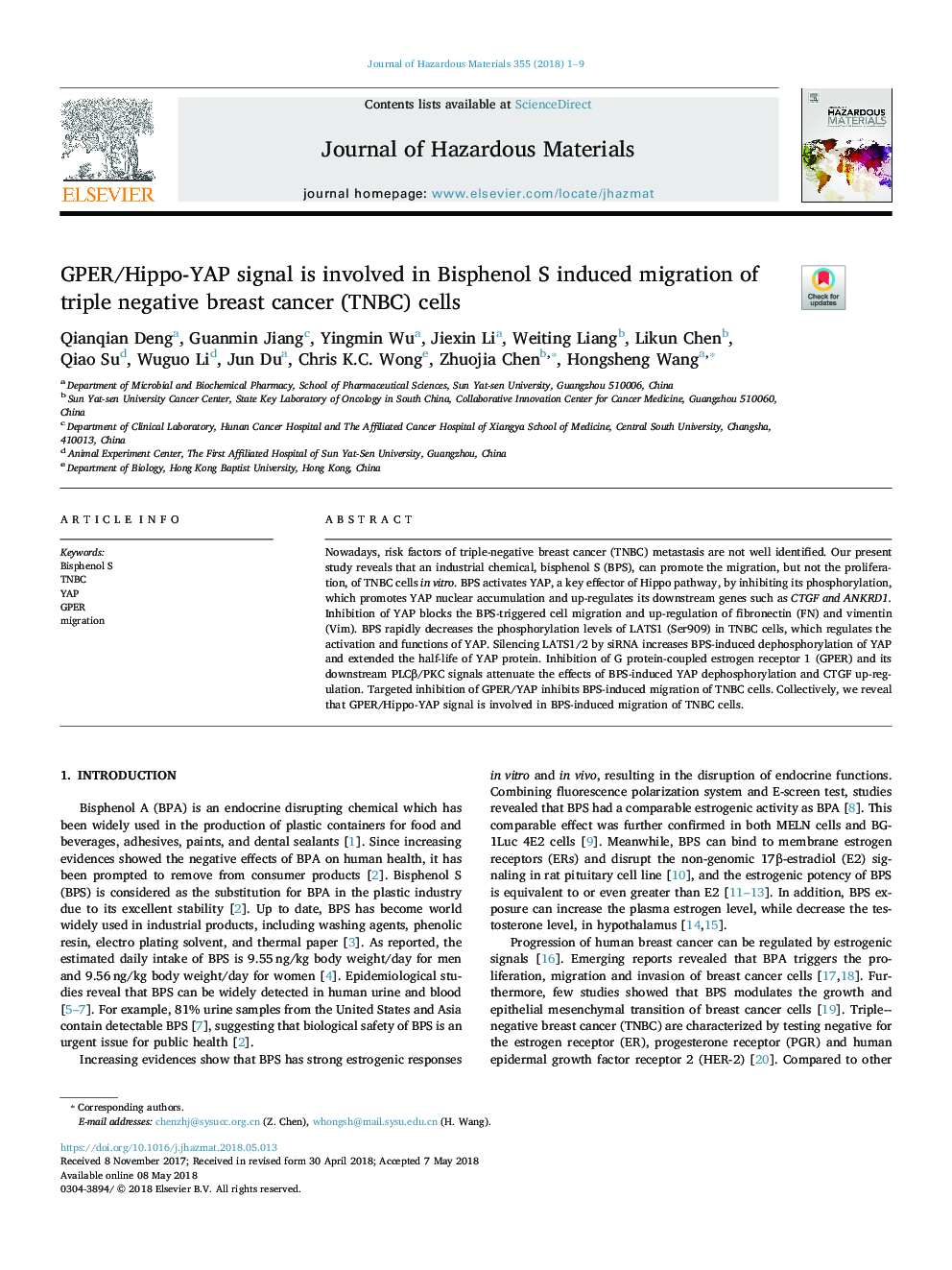| Article ID | Journal | Published Year | Pages | File Type |
|---|---|---|---|---|
| 6968188 | Journal of Hazardous Materials | 2018 | 9 Pages |
Abstract
Nowadays, risk factors of triple-negative breast cancer (TNBC) metastasis are not well identified. Our present study reveals that an industrial chemical, bisphenol S (BPS), can promote the migration, but not the proliferation, of TNBC cells in vitro. BPS activates YAP, a key effector of Hippo pathway, by inhibiting its phosphorylation, which promotes YAP nuclear accumulation and up-regulates its downstream genes such as CTGF and ANKRD1. Inhibition of YAP blocks the BPS-triggered cell migration and up-regulation of fibronectin (FN) and vimentin (Vim). BPS rapidly decreases the phosphorylation levels of LATS1 (Ser909) in TNBC cells, which regulates the activation and functions of YAP. Silencing LATS1/2 by siRNA increases BPS-induced dephosphorylation of YAP and extended the half-life of YAP protein. Inhibition of G protein-coupled estrogen receptor 1 (GPER) and its downstream PLCβ/PKC signals attenuate the effects of BPS-induced YAP dephosphorylation and CTGF up-regulation. Targeted inhibition of GPER/YAP inhibits BPS-induced migration of TNBC cells. Collectively, we reveal that GPER/Hippo-YAP signal is involved in BPS-induced migration of TNBC cells.
Keywords
Related Topics
Physical Sciences and Engineering
Chemical Engineering
Chemical Health and Safety
Authors
Qianqian Deng, Guanmin Jiang, Yingmin Wu, Jiexin Li, Weiting Liang, Likun Chen, Qiao Su, Wuguo Li, Jun Du, Chris K.C. Wong, Zhuojia Chen, Hongsheng Wang,
